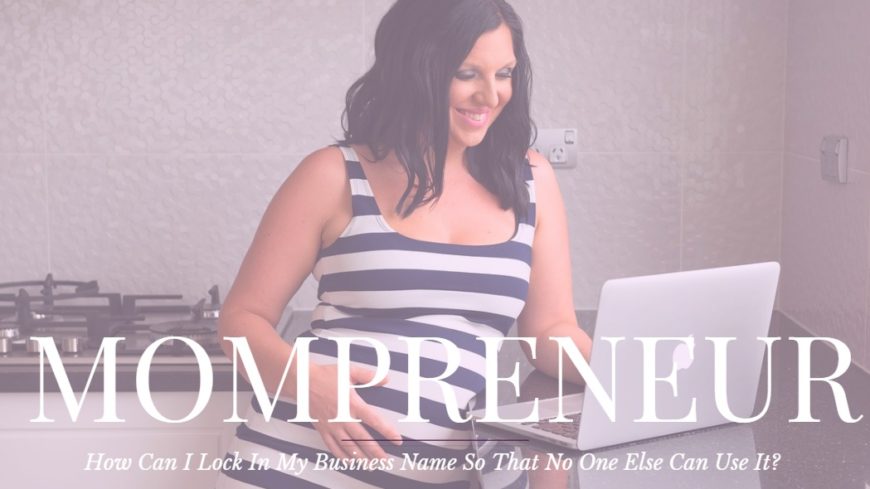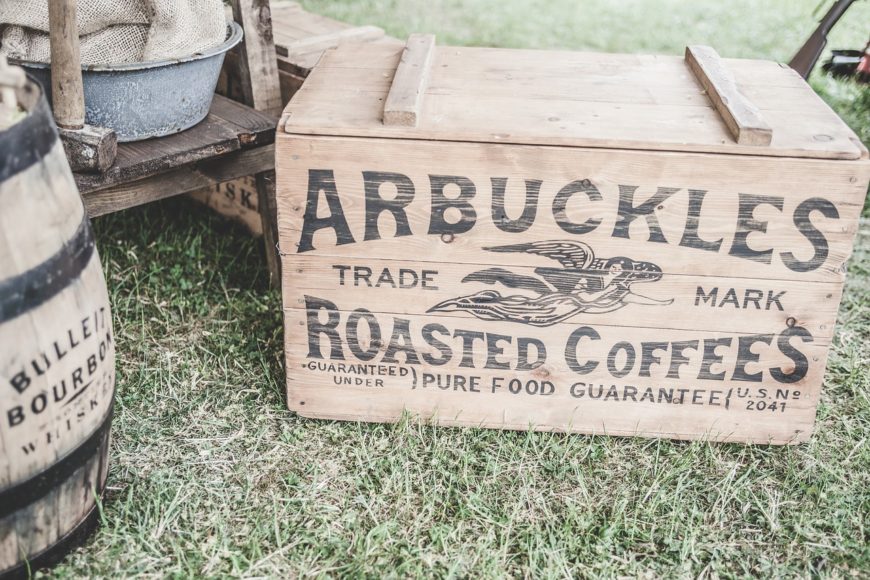How Can I Lock In My Business Name So That No One Else Can Use It?
A “Mompreneur”, a mom who is also an entrepreneur, recently asked how she can lock in her business name so that no one else can use it. She is in the early stages of starting her business and isn’t ready to have a sign on the door or even a website. She had many, many questions regarding her logo, her business name, other business names and logos, which basically came down to how she can create the brand she’s visualized without legal ramifications.
While answering her questions, we realized these may be common questions that start up entrepreneurs and new small business owners ask. We decided to share both her questions and our answers in this blog for your reference.
Note: Our Mompreneur’s anonymity is fully protected.
Question: I know what my business will be about. I have a name picked out and two design ideas but I wonder:
Does it make a difference that the name I want is used in a different industry? Can I still use it?
One of the designs looks similar to a design used by a foreign company overseas. Can I still use it?
How can I lock in my business name so that no one else can use it?
I’m not ready to have a website yet, but I want to set up my Facebook Business Page. How can I reserve the website name so that others can’t use it?
Answer: It sounds like you are well on your way to starting your business! Startups require much thought and it’s great that you’ve started on the online branding already. However, the order in which branding occurs is important for legal purposes.
To properly answer your question on the business name, we would need more details, such as the name you have in mind and the businesses and industries of said businesses that already use your chosen name. There are many ways to answer this question and to give you an idea of what the different ways might be, here’s what we would typically ask:
Have you registered a business entity for your business idea? Do you plan to? Do you plan on using your brand name as the business entity name?
- You can go on California’s Secretary of State website to look up your chosen business name and see what businesses (if any) have already registered your chosen business name in the State.
- The State will not allow you to register the same business name as an existing active business entity, even if in different industries.
If not, do you plan on registering a trade name or “doing business as” (DBA) fictitious business name?
- Conduct a “fictitious business name search” on your local county website (here’s Los Angeles County) and see if any other business in your county has taken your name.
- Once registered, file your DBA with the County Registrar.
- The county will not allow you to register a fictitious business name if there is an existing one with the same name.
Would you like to trademark your business name?
- If you really want to protect your brand, then we would recommend trademarking your business name and logo. Start by searching the trademark database to see if your chosen business name is already in use.
- You can trademark your desired business name even if another business is already using that name, provided they are in a different industry with dissimilar products/services.
- You should have begun using your desired trademarks in commerce prior to registering.
- A trademark will prevent others from using your registered business name, or names and logos that are similar to your registered trademarks. If it does not, then at least you will have legal “weapons” to protect your intellectual property.
Once you have the strategy down for your business, then start searching website domain names and finishing up that Facebook Business Page!
If you need assistance with any of the steps above, a good business attorney specializing in small businesses and startups can help analyze your specific needs and provide insight and help. Contact one of our experienced business attorneys!


